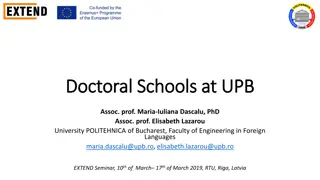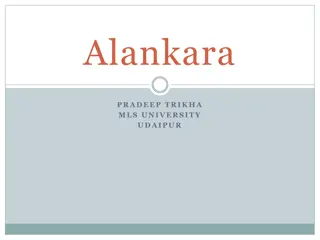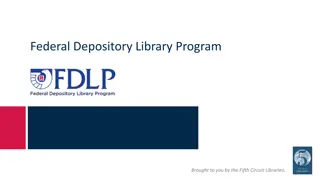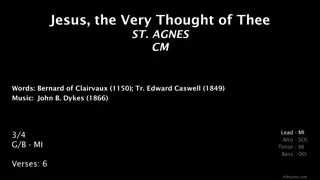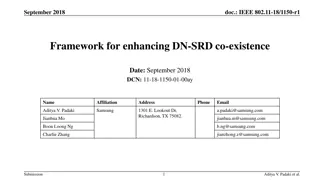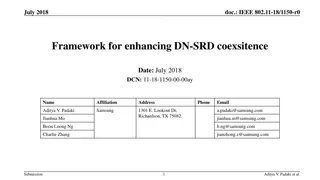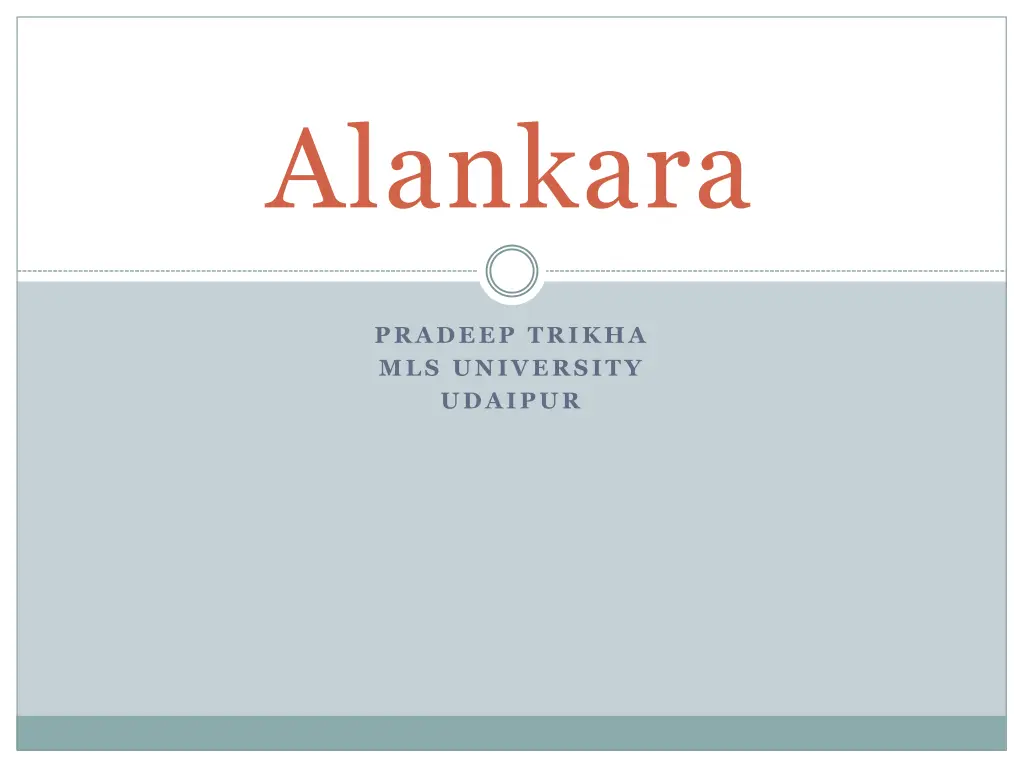
Alankara and Sabdalankar: Understanding Figures of Speech
Explore the intricate world of figures of speech in poetry, from Alankara and Sabdalankar to various types like Sabdalankar, Arthalankara, and more. Dive into the essence of poetry as Dharma with Mammat’s seven types and discover the beauty of language through metaphors, similes, and indirect descriptions. Uncover the nuances of meaning, logic, and inference with this detailed exploration.
Download Presentation

Please find below an Image/Link to download the presentation.
The content on the website is provided AS IS for your information and personal use only. It may not be sold, licensed, or shared on other websites without obtaining consent from the author. If you encounter any issues during the download, it is possible that the publisher has removed the file from their server.
You are allowed to download the files provided on this website for personal or commercial use, subject to the condition that they are used lawfully. All files are the property of their respective owners.
The content on the website is provided AS IS for your information and personal use only. It may not be sold, licensed, or shared on other websites without obtaining consent from the author.
E N D
Presentation Transcript
Alankara PRADEEP TRIKHA MLS UNIVERSITY UDAIPUR
Alankara Sabdalankar Arthalankara Vakrokti (Equivocation) Vastava (Realistic) Slesa (Paranomasia) Aupamaya (Comparison) Citra (Pictorial) Atisaya (Exaggeration)
Alankara- 1 Sabdalankar Arthalankara Anupras (Alliteration) Slesa (Coalescence) Yamaka (Repetition)
Sabadalankara (Based on meaning) Alankara as Dharma of Poetry Mammat s seven types Upama (simile) Rupaka (metaphor) Aprastuta prasamsa (indirect description) Dipaka (stringed figures) Vyatireka (dissimilitude) Virodha (Contradiction) Samuccaya (concatenation) Sadrsya (similarity) Virodha (opposition) Shrinkhalabadh (chain- bound) Taraka-nyaya(reasoning, logic) Loknyaya (popular logic) Kavyanyaya (logic of poetry) Gudartha pratiti (inference of meaning)

